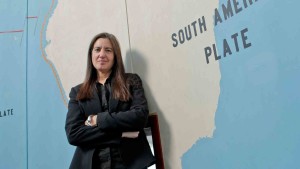Katherine Hite – President Obama’s Visit to Buenos Aires: An Important Gesture
Katherine Hite, is professor of political science at Vassar, with special interest in Latin American politics, social movements, and the legacies of violence for governments and societies throughout the Americas.
Published in AULA Blog: http://aulablog.net/2016/03/21/president-obamas-visit-to-buenos-aires-an-important-gesture/
While most eyes are on U.S. President Obama’s historic visit to Cuba, the timing and agenda of his follow-on travel to Argentina – while controversial – also is a significant opportunity for the United States to burnish its image in Latin America. Obama arrives in Buenos Aires on the 40th anniversary of Argentina’s military coup d’etat, marking a brutal period of systematic human rights violations in which the United States lent tacit support. In an important attempt to ameliorate the controversy over his timing, Obama will be delivering a cache of declassified documents on both what the U.S. knew regarding the 1976-1983 repression and on the green light that Secretary of State Henry Kissinger gave the dictatorship’s dirty war against political opponents during the final year of the Ford presidency. In addition, the President will visit the Parque de la Memoria, site of a memorial to the thousands of victims of the military regime. He’d expressed interest in a visit to the ex-Navy Mechanics School (ESMA), notorious former clandestine detention site where an estimated 5,000 Argentines were imprisoned, 90 percent of whom were murdered, but political sensitivities in Buenos Aires precluded it.
Argentina has pioneered efforts to come to terms with the past, from prosecuting and jailing former military officers guilty of violations, to “recuperating” former clandestine detention centers, where citizens were tortured, executed, and made to “disappear.” Human rights activists have converted several of these former centers, such as the ex-ESMA, into spaces to remember and to educate the public with a message of accountability and of “never again.” Some memory sites also seek to connect human rights violations of the past to ongoing violations, including police brutality and the abuse of the incarcerated, as well as to present-day struggles for social justice. Argentine school children learn about their past and study the Universal Declaration of Human Rights.
It is an important moment for the U.S. president publicly to recognize the U.S. historic role in Argentina’s tragic past – and for Argentines to show Washington, itself accused of torture and clandestine detention in recent years within its “War on Terror,” that such abuses can never be tolerated and that perpetrators must be brought to justice for a democracy to be healthy and stable. Countries throughout the region, including Chile, Uruguay, Peru, Colombia, El Salvador, and Guatemala, have similarly created memorials and museums of memory. Chile’s Museum of Memory and Human Rights gets over 10,000 visitors a month. It houses a large permanent display documenting the 1973-1990 dictatorship, and like the ex-ESMA, opens its spaces to human rights organizations, artists, theater groups, and others for workshops, plays, movie series, and more. In El Salvador, the Museum of the Word and the Image sponsors an exhibit on the roots of the country’s civil war as well as memories of the suffering and resistance. It has also sponsored exhibits on Salvadoran migration to the United States during the war and connects past to current violence, both within El Salvador and in close relation to the United States. Together these efforts invite acknowledgment, reflection, and dialogue. President Obama’s activities in Argentina, like President Clinton’s apology in Guatemala for the U.S. role in past violations in that country, are an important gesture that, within a broader U.S. commitment, could help facilitate a less tarnished image for Washington in Latin America along with his historic shift in policy toward Cuba.
Continue Reading our Special Dossier: Obama in Cuba and Argentina

